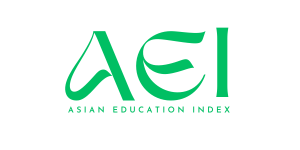The Cognitive Aspect of the Purpose of Teaching Foreign Languages
Keywords:
cognitive aspect, language education system, communicative principle, principal object of teaching foreign languages.Abstract
The cognitive aspect of the goal of teaching foreign languages is associated with such categories as knowledge, thinking and understanding processes involved in the process of introducing the student to a foreign language, to the culture of the people - its carrier. When determining the essence of the cognitive aspect of the goal of teaching foreign languages, it is important to proceed from the understanding that the language reflects the interaction between psychological, communicative, functional and cultural factors.
References
Djuraevna, T. N. (2022). Language Teaching Methodology: Tradition and Modernity. Central Asian journal of literature, philosophy and culture, 3(2), 41-51.
Qurbonov, N. B., & Tashlanova, N. D. (2021). Derivative opportunities of the Uzbek and English languages in the system of figurative place names. Scientific Bulletin of Namangan State University, 2(2), 400-408.
Ташланова, Н. Д. (2019). Использование опорной технологии в обучении русского языка. Экономика и социум, (9), 289-292.
Yarmanova, Y. B. (2019). Нравственные качеств личности дошкольника в его собственном развитии. In Методы и механизмы реализации компетентɇостного подхода в психологии и педагогике (pp. 183-185).
Ташланова, Н. Д. (2019). Развитие критического мышления студентов в вузах. Проблемы современной науки и образования, (11-2 (144)), 63-64.
Tadjibaeva, A., & Tashlanova, N. (2020). The collaborative approach in content and language learning. Теория и практика современной науки, (6), 31-34.
Tashlanova, N. (2021). The essence of collaborative approach in learning a language. Scientific progress, 2(8), 281-286.
Турсунбоева, М. А. (2023). Проблемы Формирования Профессиональной Коммуникативной Компетенции Студентов Нефилологического Факультета На Иностранном Языке. Periodica Journal of Modern Philosophy, Social Sciences and Humanities, 14, 29-31.
Tashlanova, N. D. (2019). Development of critical thinking of students in universities. Problems of modern science and education,(11-2), 144, 22-28.
Tursunboeva, M. (2019). The features of teaching english in higher education. Theoretical & Applied Science, (11), 630-632.
Ташланова, Н. Д. (2019). Применение различных видов лекций для развития критического мышления студентов в высших учебных заведениях. Экономика и социум, (8), 220-224.
Kizi, T. M. A. (2021). The concept of professional competence in higher education and the state of its formation among students of the natural science faculty.
Ташланова, Н. Д. (2018). Формирование навыков при выполнении самостоятельных работ студентов в высших учебных заведениях. Мировая наука, (4), 238-240.
Шойимова, Ш. С., Муҳаммадиева, М. М., & Ярманова, Ю. Б. (2018). Педагог касбий деструкцияси ва деформациясининг психологик хусусиятлари. Интернаука, (20-2), 61-62.
Kizi, T. M. A. (2021). Teaching natural sciences and english language on the basis of integrative approach in higher education. Asian Journal of Multidimensional Research (AJMR), 10(1), 126-129.
Ташланова, Н. Д. (2018). Эффективное использование современных компьютерных технологий на уроках иностранных языков. Экономика и социум, (11), 907-910.
Yu, Y. (2019). Positive trends and development prospects personalities of the child in the team. European Journal of Research and Reflection in Educational Sciences Vol, 7(12).
Ташланова, Н. Д. (2022). Особенности Методических Приемов Изучения Второго Иностранного Языка. Central Asian Journal of Literature, Philosophy and Culture, 3(9), 1-11.
Орипова, Н. Х., & Ярманова, Ю. Б. (2019). Проблема и перспектива воспитания детей дошкольного возраста в интересах всего общества. Наука и мир, 2(4), 48-49.
Djuraevna, T. N. (2022). Correlation of Didactics, Linguodidactics and Methods of Teaching Foreign Languages. Eurasian Journal of Learning and Academic Teaching, 12, 7-16.
Ярманова, Ю. Б. (2018). Дифференциальный подход к системе образования. Журнал научных публикаций аспирантов и докторантов, (1), 34-35.
Ташланова, Н. Д. (2018). Эффективное использование игровых технологий в процессе обучения. Форум молодых ученых, (4), 1419-1421.
Qizi, B. D. F., & Qizi, T. M. A. (2019). Difficulties in learning English as a second/foreign language. Достижения науки и образования, (4 (45)), 47-48.
Ташланова, Н. Д. (2022). Использование технологии дистанционного обучения в системе высшего образования. Research Focus, 1(2), 333-339.
Ярманова, Ю. Б. (2016). Использование дидактических игр на уроках родного языка в начальных классах. Журнал научных публикаций аспирантов и докторантов, (6), 66-67.
Абдуллаева, Б. Ю. (2021). Инновационные решения для эффективного разрешения конфликтов в ВУЗах. Central Asian Journal of Innovations on Tourism Management and Finance, 2(11), 64-70.
Djurayevna, T. N. (2022). Semantic and structural features of the vocabulary of color designation in english, uzbek and russian languages. Global Book Publishing Services, 01-123.
Yarmanova, Y. (2022). Socio-cultural foundations of personality development. InterConf.
Qizi, T. M. A. (2019). Criteria of selecting a good English-English dictionary in learning a foreign language. Достижения науки и образования, (1 (42)), 58-60.
Тashlanova, N. Teaching special disciplines with innovative technologies. Modern scientific challenges and trends, 11(30), 201-204
Kурбонов, Н.Б, Ташланова, Н.Д, (2022). Деривационные явления в топонимии в узбекском и английском языках. Хоразм маъмун академияси ахборотномаси, 302-305.
Н.Д.Ташланова, (2022). Использование дистанционного обучения в системе высшего образования. Research Focus, 1(2), 333-339.
Downloads
Published
Issue
Section
License

This work is licensed under a Creative Commons Attribution-NonCommercial 4.0 International License.
User Rights
Under the Creative Commons Attribution-NonCommercial 4.0 International (CC-BY-NC), the author (s) and users are free to share (copy, distribute and transmit the contribution).
Rights of Authors
Authors retain the following rights:
1. Copyright and other proprietary rights relating to the article, such as patent rights,
2. the right to use the substance of the article in future works, including lectures and books,
3. the right to reproduce the article for own purposes, provided the copies are not offered for sale,
4. the right to self-archive the article.













